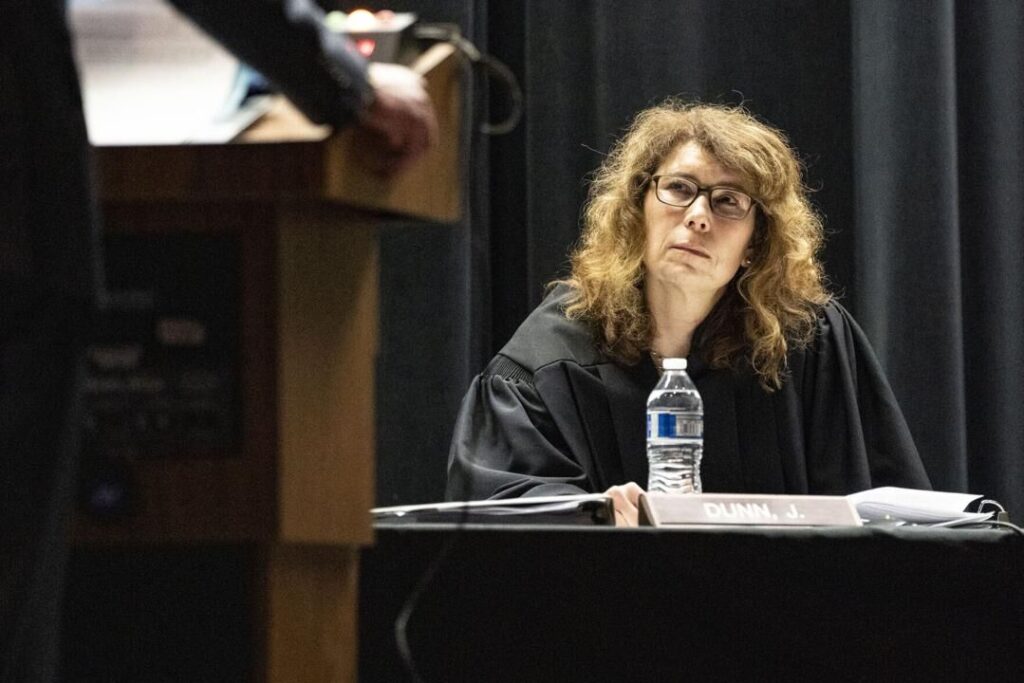Federal judge dismisses claim against coordinator of prison training exercise gone wrong
A federal judge ruled on Tuesday that the alleged coordinator of a prison training exercise could not be held liable for excessive force when the simulation took a turn for the worse and employees actually attacked each other.
As part of a 2019 hostage training at Federal Correctional Complex, Florence, prison employees punched, shot simulated bullets at and used chemical munitions on their co-workers who had barricaded themselves in an enclosed space. The victims repeatedly yelled the phrase indicating they wanted to halt the simulation, to no avail.
In a March 18 order, U.S. District Court Judge Charlotte N. Sweeney dismissed the plaintiffs’ excessive force claim against Derek Myers, the emergency preparedness officer who was allegedly responsible for the exercise. Sweeney relied on the U.S. Supreme Court’s directive that almost every lawsuit seeking money damages against federal officials for constitutional violations is a non-starter.
Such lawsuits are known as a “Bivens remedy,” named after the 1971 Supreme Court decision Bivens v. Six Unknown Named Agents. The Supreme Court initially authorized Bivens remedies in three specific circumstances: unreasonable searches and seizures, sex discrimination and deliberate indifference to an inmate’s serious medical needs.
However, the Supreme Court has since broadcast that it is largely unwilling to allow Bivens remedies in other types of cases. The Denver-based U.S. Court of Appeals for the 10th Circuit recently deemed Bivens remedies “all but dead.”
To date, two federal district judges in Colorado have taken the extraordinary step of calling on Congress to legislate a Bivens remedy to hold federal officials liable for constitutional violations just as their state counterparts are. Chief U.S. Magistrate Judge Scott T. Varholak has also criticized the inequity by which “a federal prison official may sadistically beat an inmate to within an inch of his life and that inmate will not have a civil remedy against that prison official.”
In the lawsuit before Sweeney, the Florence prison conducted a training exercise on June 20, 2019. The scenario that day involved a hostage-taking simulation.
As alleged, the plaintiffs were in the business office and sheltered in place according to Federal Bureau of Prisons policy. In response to banging on the door, the plaintiffs decided to move into a locked cashier’s cage in case the hostage-takers gained access to the office. One person reported to “main control” that multiple people were sheltering in the cage.
As the exercise played out, the plaintiffs came to think the special operations response team was compromised and working with the pretend hostage-taker. Consequently, they did not respond to entreaties to get them to come out of the cage, and instead barricaded themselves.
The defendants grew increasingly irate and did not indicate the simulation was over, so the plaintiffs refused to open the door. The defendants then breached the door, deployed chemicals and used simulated ammunition on their co-workers. The defendants even punched two employees in the face. One pregnant plaintiff had her leg pinned against a safe she had been sitting on.
All the while, the plaintiffs repeatedly shouted they were “out of role” to stop the exercise, but the attack did not cease.
Earlier in the legal proceedings, Sweeney called the defendants’ actions “stunning” and said they “engage(d) in combat with staff members, two of whom were injured and/or medically compromised.”
The defendants moved to dismiss the claims against them. Myers specifically argued there could be no viable Bivens claim against him because of the Supreme Court’s near-total shutdown on such lawsuits. His lawyers also claimed that “judicial intrusion into the BOP’s (Bureau of Prisons) planning and execution of mock training exercises for security reasons within federal prisons might be harmful, inappropriate, or lead to consequences.”
The plaintiffs responded that the defendants’ conduct had already resulted in harm to them.
“Defendants assaulted fellow BOP employees that posed no threat, in contravention of multiple BOP policies. Recognizing Bivens liability here, if anything, promotes the safe and orderly administration of federal prisons,” wrote their attorneys.
However, Sweeney concluded the Supreme Court’s limitations on Bivens remedies was fatal. She agreed with Myers that the plaintiffs had at least one other avenue for relief — an inspector general investigation — and that it was unwise for judges to intrude in matters of prison security.
“While training exercises are undoubtedly different than using force in response to a prison disturbance,” she wrote, “the rationale for leaving matters of security to prison administrators appropriately applies here.”
The other defendants’ motions to dismiss remain pending.
The case is Arroyo et al. v. Hall et al.














